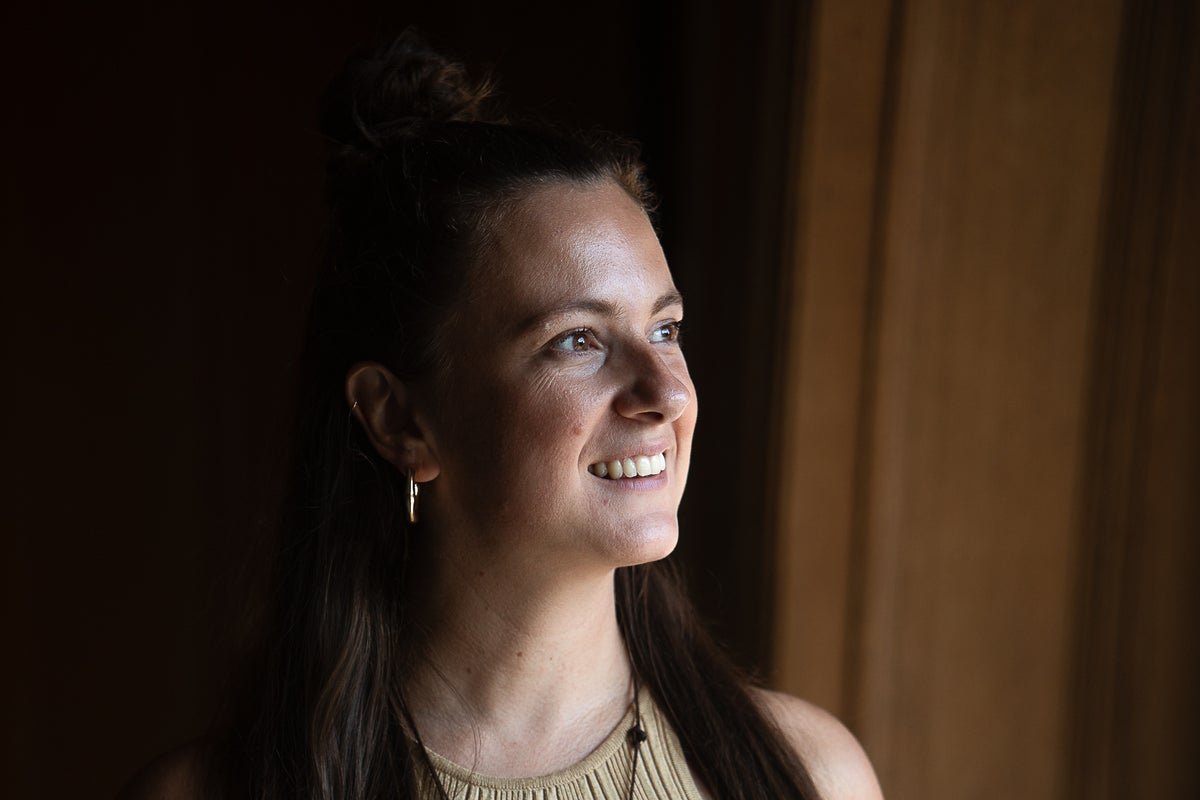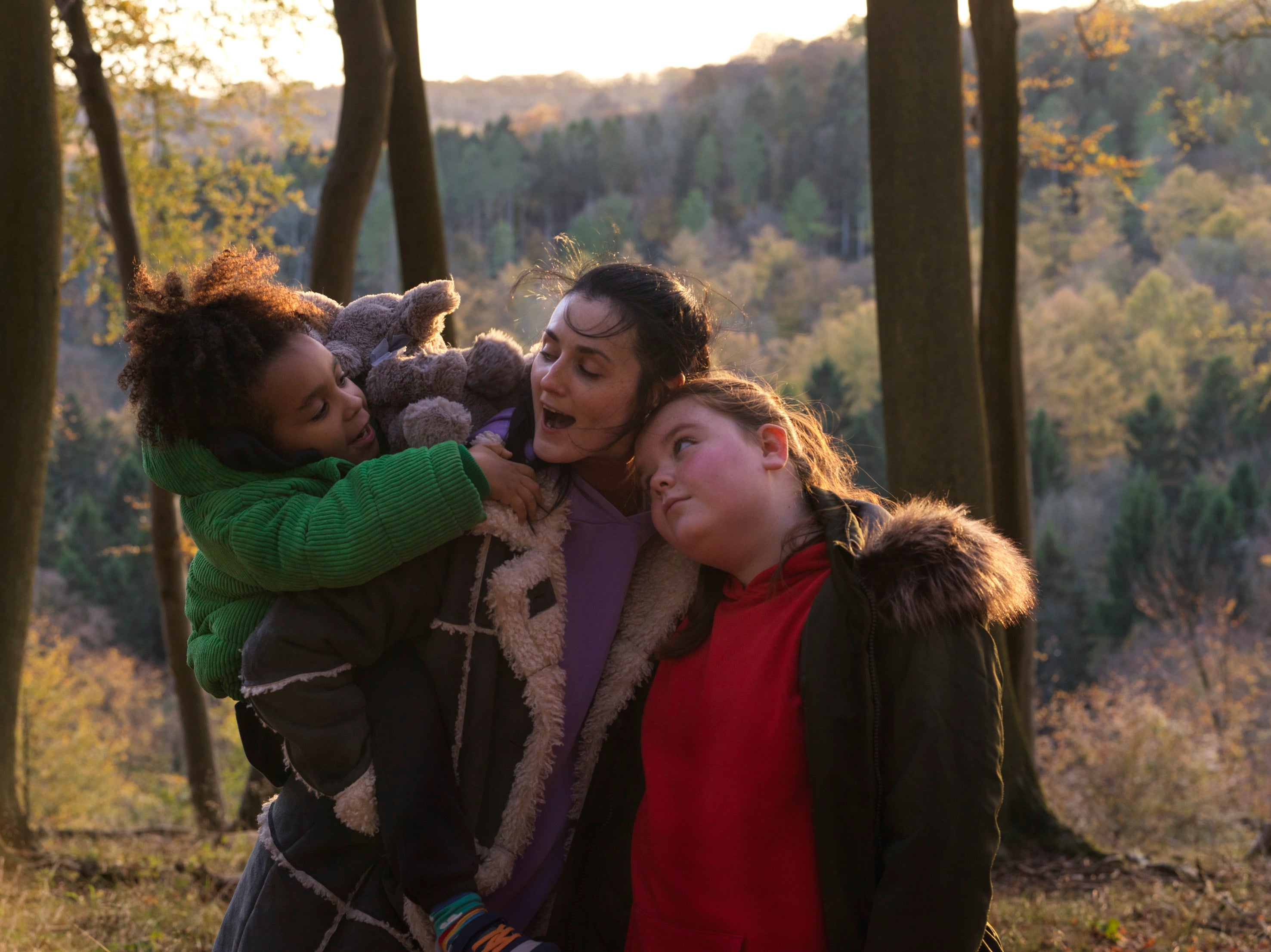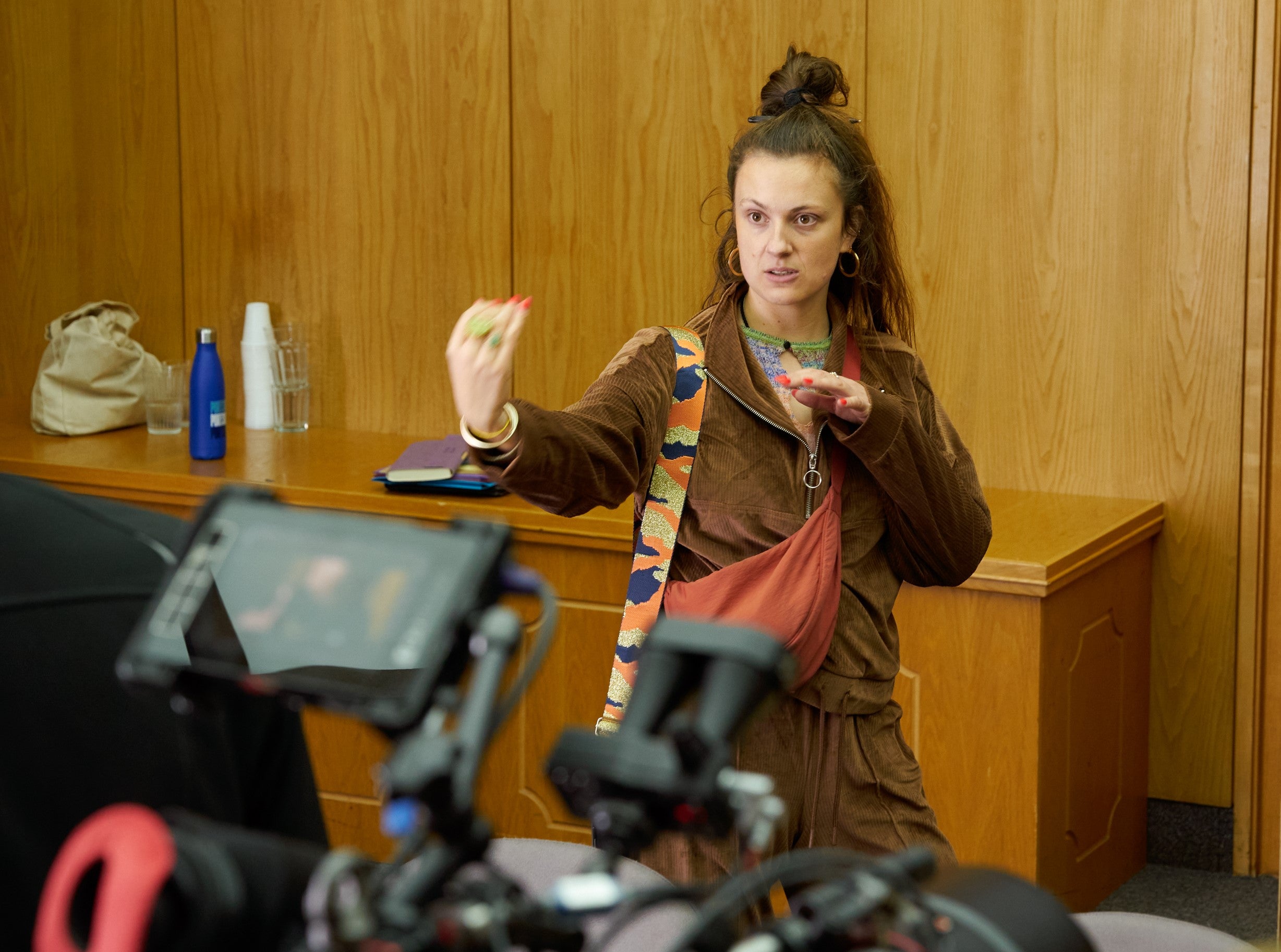
The British director Daisy-May Hudson was sitting in the library at Manchester University, writing her dissertation, when she found out she’d lost her family home. Her mum, in a state of shock, delivered the news on the phone, telling Hudson that the house she and her sister had grown up in was going to be knocked down and made into a car park. In the 13 years they had lived in Epping, rent prices had soared and they couldn’t afford to move into a new place. In a matter of weeks, they would be homeless.
“It was a very surreal moment,” says Hudson, now 35. “There were tears, and then this feeling of powerlessness.” Hudson, her 13-year-old sister and their mum spent the next two years moving between strip-lit hostels, stuck in agonising limbo while they waited to be allocated a permanent home. Every desperate, anguished email sent to the housing office was met with the same robotic response: “Thank you for your enquiry, we will get back to you in due course.”
“I hated that feeling of my life being in someone else’s hands,” she says, “so that’s why I started filming the experience. It enabled me to feel like I was actually doing something and taking the power back.” She captured every painful moment on camera, her previously effervescent mum waning as the months rolled on and the instability of temporary housing took its toll. The resulting 2015 documentary, Half Way, was the first-ever film to be used as evidence in a parliamentary enquiry into homelessness. Hudson was named a Bafta Breakthrough Brit.
After Half Way, Hudson became active in the housing movement, where she discovered a cruel paradox that was affecting many women in the UK’s penal system. “There’s this catch-22 that happens,” she explains, “where if you’re coming out of prison and trying to get rehoused, if you don’t have your children, you can’t get housing. And if you don’t have housing, you can’t get your children. It’s a cage that you’re unable to get out of. It’s brutal. And I just wanted to do something about it.” So, she did. This week, Hudson releases Lollipop, her first fiction film.
Don’t be fooled by its sweet title; Lollipop is a guttural howl. It follows Molly, who, after a short stint in prison, finds herself homeless and fighting for custody of her young children. Played by electric newcomer Posy Sterling, Molly becomes trapped in a hellish bureaucratic cycle, not dissimilar to the red-tape purgatory Hudson herself experienced.
Molly might have physically left prison, but she is still locked up in a terrifying new reality, one in which she sleeps in a tent with a key between her knuckles and isn’t allowed to be alone with her kids. When one housing officer behind a Perspex screen sighs and tells her that she just needs to “keep pushing” for suitable accommodation, Molly roars. “There’s a very visceral connection between a mother and child,” says Hudson, “and when that is taken away, I’ve seen it happen, it ignites this lioness capacity to be able to fight and do whatever it takes.”
We meet in the basement of a Soho venue where Lollipop is being screened. In conversation, Hudson sounds more like a bright-eyed campaigner than an acclaimed filmmaker, her swirly gold earrings quivering as she talks passionately about the injustices she has witnessed first hand, and the power of sisterhood in the face of trauma.

As Ken Loach did before her with I, Daniel Blake and Sorry We Missed You, Hudson has made a social realist drama that serves as a damning indictment of the status quo – and an urgent call for change. She was careful, though, not to write a story about heroes and villains. “People go into these jobs with the best intentions,” she says of the vacant-seeming, lanyard-wearing employees Molly comes up against. “But they become desensitised by how much pressure they’re put under, how many people they have to see, and what they have to cope with. And they’re just trying to get it right. There’s that tension between people wanting to do what is in their humanity and then being stuck within these rules of the system and wanting to keep their job.”
For this reason, Hudson cast women who had personally experienced homelessness to play characters working in housing and social care. “I knew they would bring compassion to the roles, having sat on the other side of the table,” she says. It was important that those working within the system would find it authentic, and those on the outside would find it genuinely revealing. “So much of the family court is all done in secrecy to protect the children, so we can never really see it out in the open and actually have that critical engagement to ask, ‘Does this work? Is this the best we can do?’” she says. “I’m trying to bring transparency to it.”
Our system is sending people out into even more unsafe environments than they came from
She also wanted to bring attention to the lack of aftercare women receive upon leaving prison. According to the Prison Reform Trust, of all the women who left UK prisons between 2022 and 2023, only half did so with settled accommodation. Leaving the prison gates, they are given tents instead. Many women have dependent children – an estimated 17,000 children are affected by maternal imprisonment every year – and more than half of women in prisons have suffered domestic abuse. They are some of the most vulnerable people in society.
“I could actually cry now when I think about it,” says Hudson, “because I feel it so deeply. Our system is sending people out into even more unsafe environments than they came from. When people come out of prison, they don’t have access to housing, they can’t get a job, and there’s so much stigma. They’re just back into survival mode – get a job, get your kids back, get money, get housing. It’s a very harsh way of life. That’s what I’m really driven by – how can we bring love and compassion to people’s stories, and give them a context beyond what judgments people may make about them?”

Hudson points to another legal quagmire women often fall into: those seeking custody of their children are sometimes told they need to undergo therapy before their court date. The catch? Wait times for therapy in this country are longer than wait times for court. “They can’t physically do it, and yet that is what the system has prescribed to them,” she says. “So, the women are just set up to fail.”
Bleak as the situation is, Hudson can see a path out of all this. She wants the social and housing departments to communicate with the courts and join up the dots. She wants them to listen to people whose lived experience can effectively inform their processes. “They’re the experts because they’ve actually lived through it. They should be listened to.”
Listening to these women, says Hudson, will also help to strip away some of the stigma attached to homelessness. In Lollipop, Molly bumps into a childhood friend who later becomes a life raft for her. When the woman spots her tent, Molly is so ashamed of her situation that she tells a white lie to cover it up. “Going camping!” she says, forcing a smile. Hudson has seen this shame play out first hand. Her younger sister, who was 13 when her family began living in hostels, would similarly hide their housing troubles from her school friends. “She would walk a certain way to pretend to her friends that she was going to a house, then once they’d left, turn around and walk back to the hostel. It breaks my heart.”
When Hudson released Half Way a decade ago, there were homeless women at the screenings standing up as they punched the air and clapped. “They felt fully seen for the first time and without shame because radical honesty and storytelling takes it away,” she says. Hudson hopes that Lollipop will have the same effect. “If you can take something that’s been painful and turn it into something powerful for you, and powerful for others, it’s worth it.”
‘Lollipop’ is out in cinemas nationwide on Friday 13 June
How Donald Trump is getting his own back on LA – the city that bet against him
Nickel Boys’ Brandon Wilson: ‘There’s no logic to racial structures’
Netflix’s Frankenstein might be the most urgent and timely blockbuster of 2025
Bryce Dallas Howard: ‘As a kid, I would walk around Disney reading about euthanasia’
15 terrible movies directed by great actors, from Ryan Gosling to Johnny Depp
‘He threatened my career’: 22 actors who didn’t get along with their directors







